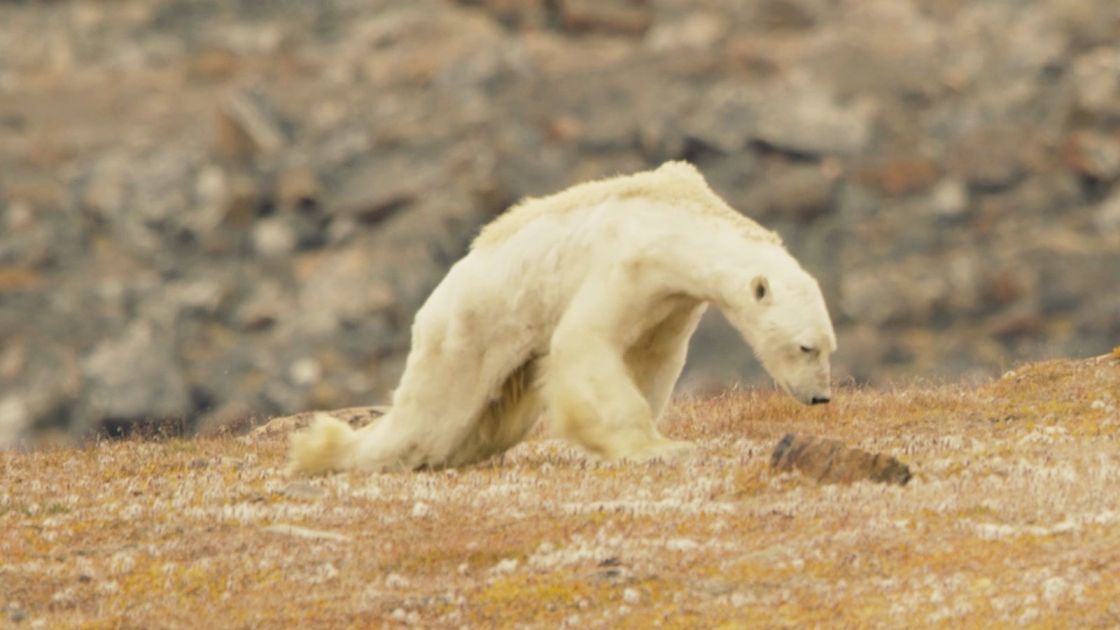الدبّ الأبيض الذي يتضوّر جوعاً
قام مجموعة من صانعي الأفلام بمشاركة صورة للحظة مأساويّة تعثّروا بها صدفة، لدبّ قطبيّ يتضوّر جوعاً، محاولاً التعلّق بالحياة في البريّة وهو يبحث عن الطعام.
تعريب وإعداد: عروة درويش
قام مجموعة من صانعي الأفلام بمشاركة صورة للحظة مأساويّة تعثّروا بها صدفة، لدبّ قطبيّ يتضوّر جوعاً، محاولاً التعلّق بالحياة في البريّة وهو يبحث عن الطعام.
التقط المصوّر بول نيكلن هذه الصورة للدب، مع طاقم تصوير برنامج «إرث البحر»، في جزر بافينز الكنديّة الصيف الماضي. التقط الفريق صوراً مؤلمة للدبّ الناحل الذي بقي بعض من شعره الأبيض يتأرجح فوق هيكله العظمي، وهو يجرّ قدميه الخلفيتين جرّاً.
قال السيّد نيكلن الذي لم تحضره خبرته الطويلة في البراري لمثل هذا المشهد: «وقفنا هناك نبكي ونحن نصوّر. أردنا أن نتدخّل لكننا لم نستطع ذلك، لقد كنّا عاجزين لا نملك لحماً لنقدمه له، ولا بندقيّة مهدئة ننهي بها معاناته».
يعتمد الدب الذي يصل وزنه إلى نصف طن بشكل أساسيّ على جليد البحر كمصدر يجد فيه غذائه، وتحديداً الفقمات. ولهذا فقد عانى بهذا الشكل المرعب من تغيّر المناخ. فمع ازدياد حرارة القطب بمعدلات خطرة، يذوب الجليد الذي يعتمدون عليه من أجل صيد الفقمات. إضافة إلى أنّ هذا الذوبان قد دفع بالدببة الرماديّة، وهي التي تعيش في مناطق أقلّ برودة، إلى الانتقال إلى هذه المناطق ومنافستهم عليها.
وهناك العديد من الدراسات التي وصفت بشكل دقيق ما يحدث هناك، وحذرت جميعها من أنّ خطر الانقراض يهدد الدبّ الأبيض القطبي.



 لوسي روبنسون
لوسي روبنسون